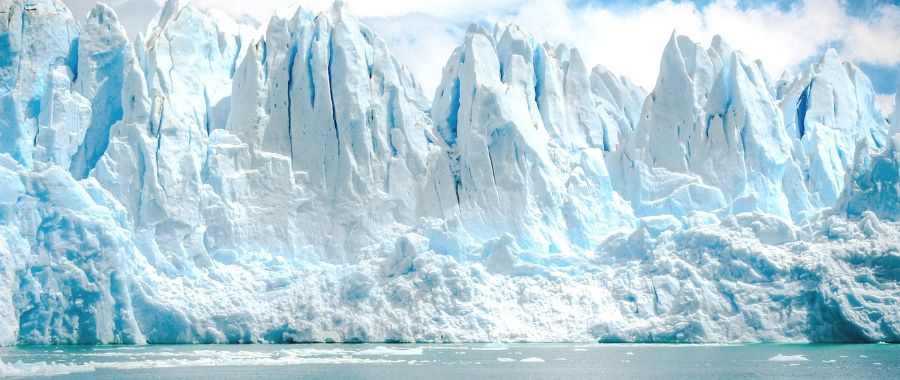The views expressed in our content reflect individual perspectives and do not represent the authoritative views of the Baha'i Faith.
When I first started personally studying and writing about climate change two decades ago, many skeptics and deniers existed. Now the skepticism has diminished – but not entirely.
A reminder of that fact happened a few weeks ago when I received a comment in response to my recent BahaiTeachings.org article about climate change and the burning of the Amazonian rainforests. The comment said, in part, that “The purported CO2 greenhouse effect has been vastly overestimated and actually climate change has failed to produce the catastrophic warming predicted by climate models.”
While I normally don’t have the time or the inclination to engage in disputes over issues, I felt that this particular comment represented a good opportunity to actually delve into the science of the matter, and simultaneously discuss the important Baha’i principles of consultation and the essential agreement of science and religion.
Baha’is revere science. That may sound unusual, coming from the perspective of a global religion, but the Baha’i writings themselves have always exalted scientific knowledge, making its acquisition “incumbent on everyone” and even calling it humanity’s “highest attainment:”
Arts, crafts and sciences uplift the world of being, and are conducive to its exaltation. Knowledge is as wings to man’s life, and a ladder for his ascent. Its acquisition is incumbent upon everyone. The knowledge of such sciences, however, should be acquired as can profit the peoples of the earth … Great indeed is the claim of scientists and craftsmen on the peoples of the world. – Baha’u’llah, Epistle to the Son of the Wolf, pp. 26-27.
Scientific knowledge is the highest attainment upon the human plane, for science is the discoverer of realities. It is of two kinds: material and spiritual. Material science is the investigation of natural phenomena; divine science is the discovery and realization of spiritual verities. The world of humanity must acquire both. – Abdu’l-Baha, The Promulgation of Universal Peace, p. 136.
But regardless of the science involved, arguments over climate change continue daily. Much of the contention and the shouting involve strong conflicting opinions, so let’s see if we can take a short break from those emotional disputes and begin our discussion about the verifiable truth of the matter. We’ll start with five reality-based, non-controversial, generally accepted scientific facts:
- The Earth’s surface is warming. The overwhelming majority of scientists agree that the Earth is warming; and the data proves it. The Intergovernmental Panel on Climate Change (IPCC) – a group of 1,300 independent scientific experts from countries all over the world under the auspices of the United Nations, who regularly issue peer-reviewed assessments of the world’s climate on behalf of 195 countries – reports that “Scientific evidence for warming of the climate system is unequivocal.”
- The Earth’s overall temperature rise is measurable. Here’s the actual data from the U.S National Oceanic and Atmospheric Administration (NOAA): “The planet’s average surface temperature has risen about 1.62 degrees Fahrenheit (0.9 degrees Celsius) since the late 19th century, a change driven largely by increased carbon dioxide and other human-made emissions into the atmosphere. Most of the warming occurred in the past 35 years, with the five warmest years on record taking place since 2010.”
- The world’s seas are warming – and rising. The top 700 meters (about 2,300 feet) of ocean has warmed by more than 0.4 degrees Fahrenheit since 1969. Global sea level rose an average of 8 inches in the last century. The rate in the last two decades, however, is nearly double that of the last century and is accelerating slightly every year. (Both of these measurements come from NOAA and are confirmed by the U.S. National Aeronautics and Space Administration)
- Human activity is the primary driver of the Earth’s temperature increase. In its Fifth Assessment Report, the IPCC concluded that there is a more than 95 percent probability that human activities over the past 50 years have warmed our planet.
- Carbon dioxide from the burning of fossil fuels causes most global warming. According to literally thousands of scientific studies, the industrial activities that our modern civilization depends upon have raised atmospheric carbon dioxide levels from 280 parts per million to 400 parts per million in the last 150 years. That excess CO2 traps heat in the Earth’s atmosphere.
Any literate person can verify these facts with a little research and some relatively light reading.
Those five basic facts have resulted from decades of determined, professional scientific investigation and measurement reported in thousands of peer-reviewed research studies all across the globe. Although a few (or even all) of these five facts used to be disputed by those who deny the existence or the importance of climate change, only a few fringe naysayers now question them.
Even large oil companies now acknowledge the reality of climate change. For example: in peer-reviewed climate studies by Exxon Mobil from 1977 to 2014, 83 percent acknowledged the reality of climate change, and that it is caused by humans.
So how do those who continue to minimize or deny climate change justify their arguments in the face of this accepted science?
Some say that wobbling of the Earth’s axis is responsible, but cite no actual evidence to back up that contention. Some say yes, the Earth is warming, but we can’t “prove” the cause – despite the fact that the overwhelming preponderance of scientists agree on the causes.
Others say that a natural fluctuation in atmospheric carbon has occurred throughout history, which is certainly true – scientific core sample measurements of ice show that our planet had much higher concentrations of atmospheric CO2 millions of years ago. However, that argument leaves out a salient point: human beings didn’t have to survive in those conditions, because we didn’t exist yet. Dinosaurs did, and look what happened to them.
Another myth: “Record snowfall disproves global warming.” The scientific fact: Warming leads to increased evaporation and precipitation, which falls as increased snow in winter and increased rain in some areas in other seasons.
Yet another myth: “Solar cycles cause global warming.” The scientific truth: Over the last five decades, since 1970, the sun’s temperature has actually cooled slightly.
Then, those who want to create doubt about climate change promote maybe the most irresponsible myth of all: “The science isn’t settled.”
That oft-cited argument reveals a basic misunderstanding, or a purposeful one, of how science itself works. It assumes that the scientific method leads to absolute certainty – when it never does.
Instead, scientists always rely on a preponderance of evidence, and then leave their views open to change based on new evidence. We define science, after all, as a systematic enterprise that builds and organizes knowledge in the form of testable, factual explanations and predictions about the universe.
The standard scientific method represents the best way we know of to reach relative empirical truth – with transparency, continuing skepticism, gathering more evidence and repeatedly testing prior scientific conclusions. Scientists always aim at truth as the goal, but the scientific method itself dictates that absolute truth can never be permanently reached in practice, because our understanding of the physical universe keeps evolving.
All of this simply means science employs a rigorous, fact-based standard of belief we would all do well to emulate. As the Baha’i teachings point out: “… there is a great difference between facts sustained by science and theories upheld by blind belief …” – Abdu’l-Baha, Divine Philosophy, pp. 104-105.
So when people say the science isn’t settled on climate change, they miss a fundamental verity of science itself – which is never completely settled. That’s why we call it science:
The outcome of this intellectual endowment is science, which is especially characteristic of man. This scientific power investigates and apprehends created objects and the laws surrounding them. It is the discoverer of the hidden and mysterious secrets of the material universe and is peculiar to man alone. The most noble and praiseworthy accomplishment of man, therefore, is scientific knowledge and attainment. – Abdu’l-Baha, The Promulgation of Universal Peace, p. 29.
You May Also Like
Comments

















― Pema Chodron